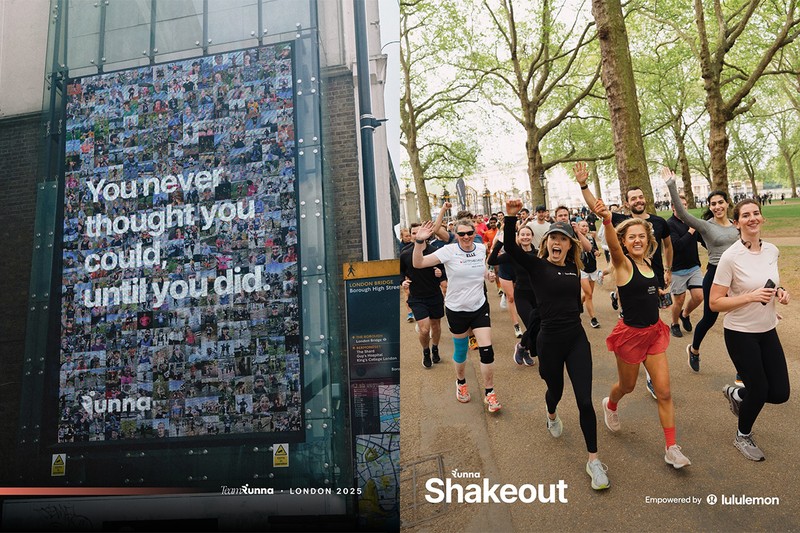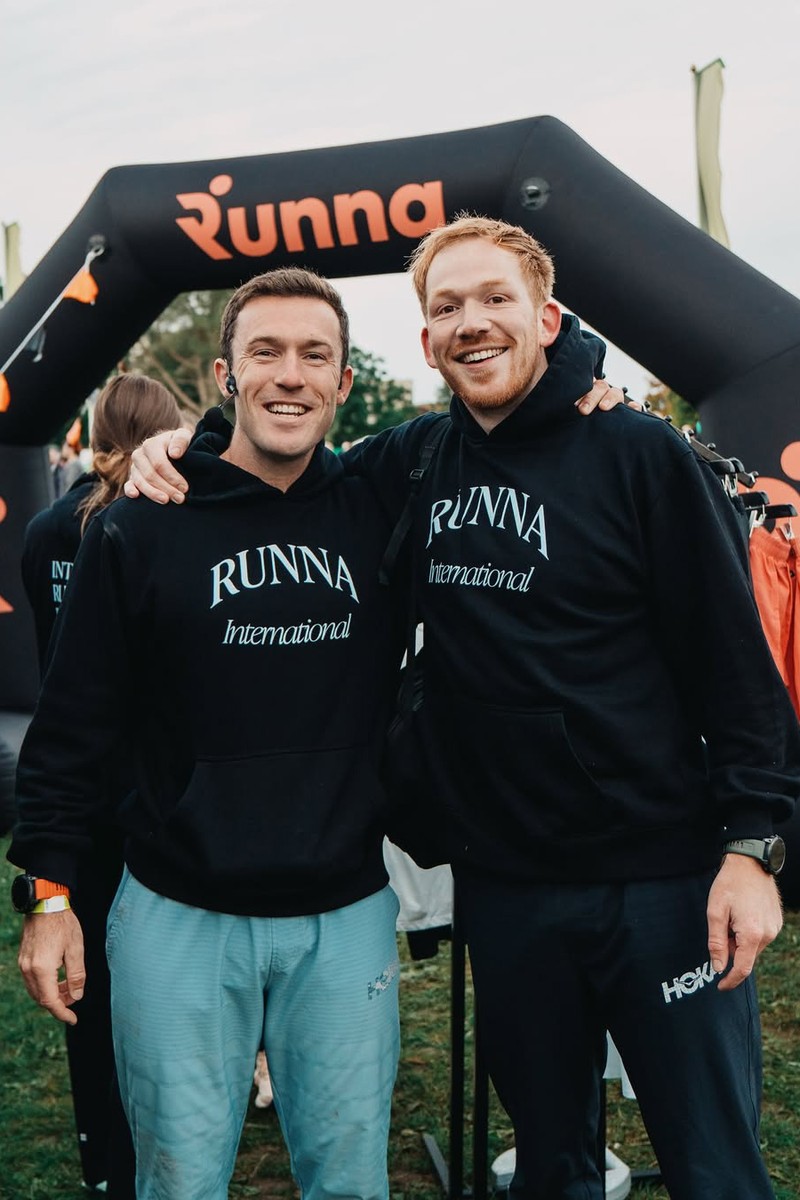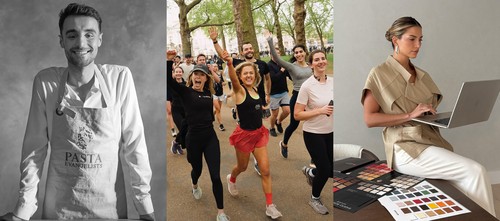
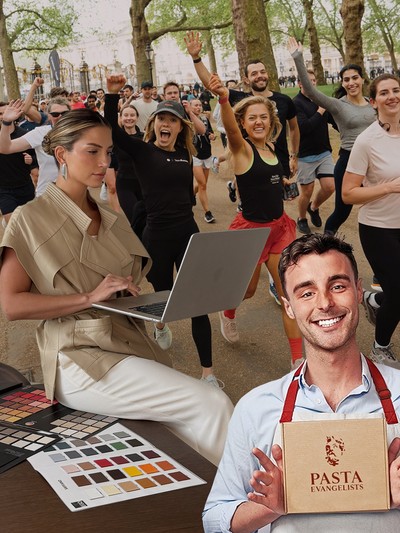
3 Young Entrepreneurs Share Their Stories & Secrets To Success
All products on this page have been selected by our editorial team, however we may make commission on some products.
Finn Lagun
Pasta Evangelists
Along with his two co-founders, 31-year-old Finn Lagun started Pasta Evangelists in 2016 as a home delivery recipe kit business. Following a stint on Dragons’ Den and exponential growth during the pandemic lockdowns, it was bought by Italian food company Barilla for £40m in 2021.
I made the mistake of trying to work for other people twice. I joined a grad scheme after university but I lasted three months. Then, I joined a German start-up, which I loved – that was the first time I really got to do my own thing without anyone bossing me around. But eventually the pressure of seeing all my mates in the City drove me to get a ‘proper’ job. So, I joined Amazon and realised I’d made the same mistake twice. I just knew I had to do my own thing and that's what I've been doing ever since.
I'm not Italian, I'm from Newcastle. One of my other co-founders Chris is also English and then our third, Alessandro is Italian. The idea was technically Alessandro’s, but we all set up the business together. He knew first-hand how much craftsmanship goes into making real fresh pasta – he knew it was a product of love – and that was kind of the light bulb moment.
The first thing we had to do was find customers. We started as an e-commerce business, so we didn't have any shop front to tell people where to come, so getting that first bit of online traction was quite difficult. Then you need to raise funds. We did an angel funding round in 2017, then we started some basic marketing and then the watershed moment came on Dragons’ Den in 2018. That was free advertising to four million people and the business completely changed after that.
No one will ever say to your face that you are too young to know what you're doing. But I was 24 years old and had only worked for a couple of years – so I felt the implications of that in a boardroom setting. I realised I had to stand up for myself and not let people speak over me. The trump card we had over our investors was that we had grown up with social media and technology – we knew the digital capabilities inside out. Facebook ads were our primary marketing channel, and we tried to make money out of every customer we acquired. It was only a few years into the brand that we said we had enough budget to start doing more above-the-line media campaigns refocusing on just delivering brand messages.
The pandemic really was a blessing for our business, commercially speaking. We were a home delivery service at a time when people didn't want to go outside. I remember sending an email to our database after the first Boris Johnson briefing saying don't worry, we're not going to run out, so you don't need to panic buy from us. I think it endeared our customers to us more because we were not taking advantage of the situation – we were encouraging people to consume responsibly. But in any case, between February and April of 2020, our business grew ten times over.
It was chaos. Overnight your volume expands ten times but you don't have the staff and everyone's trying to work out the health and safety protocols. It was brutal and our investors wanted to know what the plan was. But no one knew anything about how long this situation would last. The only difference was our competitors were shutting down orders and we never stopped taking them. We knew this was such a ripe moment for growing the business. It was painful but it worked.
Since the beginning, we’d been mindful about a possible exit. One company we had in mind was Barilla – a family-owned, iconic Italian business. It’s synonymous with pasta in Italy. After Covid, we had several interested parties but we chose Barilla because it’s the godfather of pasta. The deal felt extremely humbling. We were ecstatically happy as well – to know you got it right during your first stab at it, it's a great feeling. Equally, we were riding a huge pandemic business wave, so there was an element of right place, right time – but we did harness the opportunity in a good way.
I've been doing this for almost eight years now, and I’m still learning every day. There are always new challenges and people do think you can turn your hand to anything, but the truth is, it doesn't matter if you're an entrepreneur or founder or if you're sold a business – there's still going to be loads of things you're not very good at. But if you are a founder or entrepreneur, you want to be in the middle of the action, leading the way forward. I’ve always been focused on this business, and I still am today.
We've changed our business about five times over our short life. We started as a direct-to-consumer recipe kit business, shipping directly to customer's homes. Then we opened a restaurant in Harrods, and then we launched on Ocado. So, you learn about retail, dealing with buyers, dealing with pack sizes and barcodes while simultaneously trying to curate a beautiful restaurant experience. Then there’s the takeaway business, dealing with Deliveroo and Uber Eats, and we've just pivoted the business again by opening what we call fast casual restaurants in London. We’ve gone back to learning everything from scratch.
When I look back, I think it's okay to go and do something if it teaches you that it isn't for you. As long as you learn the lesson, leave quickly, and find some confidence and self-awareness, then that’s a positive. I've tried it and now I know that there's no alternative but to do this myself. It actually gave me more confidence to give it a go. So that’s the advice I’d give young people who aren’t sure about making the leap. If you know there’s no alternative, then it’s probably the right choice.
Visit PASTAEVANGELISTS.COM
Cass DiMicco
Aureum Collective
Cass DiMicco, 34, co-founded jewellery and accessories brand Aureum with her husband Matthew Hoyle in 2019, leveraging their respective backgrounds in fashion and finance to create collections and pieces that are now worn by fashion ‘It’ girls around the world. Most recently, Forbes put the company’s annual growth at 75% year-on-year, with sales now exceeding eight figures.
We created Aureum when I was in my late 20s – it was a time when I wanted to dress in a more timeless, chic way. I was tired of chasing trends, and once I created a capsule wardrobe, I realised how crucial accessories were in elevating every look. Aureum began while I was still dating my now-husband. With his finance background and my experience in fashion and buying, we knew we'd make the perfect business partners. At the time, I had just transitioned from being an assistant buyer to working as a full-time content creator, a huge shift from a corporate structure to being my own boss. My husband and I brainstormed ideas together, and Aureum was one that felt right.
We didn’t seek outside investment; we simply bootstrapped everything. It only took three months to go from the initial idea to launch, which was incredibly fast. We saw a gap in the market for bold, high-quality statement jewellery and decided to take the leap. Our confidence came from a mix of factors: the traction I had built in my personal brand career, my deep industry knowledge, and the belief that we could create something meaningful with a strong point of view.
Refusing outside investment has come with its challenges – especially in the early days. But it has also given us complete creative and strategic control. My career as an influencer has allowed me to reinvest in the brand, fuelling its organic growth and enabling us to expand into new categories on our own terms. We’ve always embraced a slow and steady approach, believing that true longevity is built with intention. Along the way, we’ve navigated scepticism around being an “influencer brand” and the rise of dupe culture, with countless imitations of our designs. But ultimately, authenticity, quality and a relentless commitment to craftsmanship will always set us apart.
The biggest lesson I’ve learned is staying true to the vision while also remaining adaptable. As a founder, you're constantly navigating new challenges, whether it’s customer feedback, production issues, growing a team or scaling. Being open to evolution while staying grounded in what the brand stands for is crucial. I’ve also learned to trust my intuition when it comes to design. It’s so important to look ahead, be at the forefront of trends and pave your own way, rather than getting caught up in what everyone else is doing.
The best advice I can give is to prioritise creating an amazing product and fostering a strong, direct relationship with your manufacturer. Obsessing over quality and design is essential, but the true game changer lies in that partnership. I personally oversee every aspect of production and design, working closely with our Italian manufacturer – no middleman, just constant, direct communication. We’re on WhatsApp all day, and over time, they've become like family. Seeing the impact we’ve had on their lives makes this journey even more rewarding. At the end of the day, quality speaks for itself – it’s why our customers keep coming back. Many don’t even realise I run the brand, and I love that. It proves that our craftsmanship and integrity stand on their own.
In the next five years, I envision Aureum evolving into a full-fledged fashion house – one that continues to redefine timeless elegance through beautiful craftsmanship. We’re thrilled to expand into new accessory categories in 2025, staying true to our ethos of effortless dressing. Every piece we create is designed to stand the test of time, blending refinement with everyday ease. Behind the scenes, we’ve been creating new designs, and we can't wait to share what’s next. A flagship retail space is definitely a goal for me, so our customers can see our products in person.
Success, to me, is more than just numbers – it’s about building a brand that people trust, love and return to time and again. It’s about striking the balance between my creative vision for Aureum and the life I cherish with my family. I want to look at what we’ve built and know it reflects my values – uncompromising quality, intentional design and authenticity.
Visit AUREUMCOLLECTIVE.COM
Dom Maskell & Ben Parker
Runna
Dom Maskell, 30, and Ben Parker, 29, met as lacrosse teammates at the University of Southampton and later developed Runna to make personalised running plans accessible to everyone. The app, officially launched in March 2022, was acquired by fitness platform Strava in March 2025. At the time, Runna had an estimated value of $40m.
Our relationship dates back to when we first met at university. But it was after that time in our lives where Runna really started. As a full-time running coach, I helped Dom train for his first half-marathon, and it was after that when we recognised there’s an opportunity to help people on their running journeys and achieve their goals by providing personalised training plans in a much more intuitive and engaging way than was widely available at the time. We’ve now turned a rudimentary PDF-format training plans service into an app that combines cutting-edge tech with real-word insight from top running coaches to provide personalised training plans that are easily accessible. Runna was ultimately inspired by a love of running and desire to share the positive impact it can have – it’s seeing this impact that continues to motivate us every single day. – Ben
A big challenge was securing financial investment. We quickly saw our concept had huge potential from the uptake – our personalised PDF builder was called ‘The Run Buddy’ – but we needed the financial resources to realise that. We raised an initial £500k from our earliest 303 investors via a crowdfund at the end of 2021, which allowed us to launch on the app store as a subscription-based business under our new name Runna. We then went on to raise a total of £8 million from a series of VCs, angel investors and top-level athletes, before the recent acquisition from Strava. – Dom
Our community always believed in our vision and trusted us to deliver – we will always be hugely grateful for the support we felt from day one. Investing in our community has always been at the centre of what we do – from our very first free meet up events in 2021, we set out to create the best possible experience, whether that’s using one of our personalised plans, joining us at any of our run-clubs or engaging with our social channels. That was true then and remains so now. – Ben
As founders you have to be comfortable knowing you don’t know everything. Ben and I complement each other, and while we started out doing everything ourselves, we’ve built a proper team over the past two years. Nothing of what you see from Runna today would have been achieved without a team that loves what Runna stands for. – Dom
What makes me so passionate about Runna is our ability to bring communities together. One of the biggest lessons along the way was to always remember who we’re creating the brand for. Runna is designed for anyone, with any pre-existing or non-existent experience with running, with any desired goal and from any walk of life. – Ben
Signing the Strava deal was incredibly exciting. Strava is a brand that has led the way in the active industry for such a long time, and one we’ve admired in so many ways. At the core, the decision to sign made perfect sense because we have a shared mission of encouraging people to get out and move. – Dom
Strava has always felt like the perfect home for Runna. It’s the world’s largest fitness community, so the partnership unlocks huge potential. When we launched the business, it was our wildest dream to be able to one day be recognised by Strava, let alone work together in this way. It is also our first exit as founders, which was a special moment. Getting to this point has been a lot of work, but we couldn’t be more thrilled. – Ben
The advice I’d give other entrepreneurs is live your product. Runna started because Ben was a running coach and I sought his help to train for my first race – we’re at opposite ends of the spectrum of what being a runner can be, yet that’s what connected us. – Dom
You also need to understand who you’re creating the brand for. Our guiding principle was to offer the best personalised training plans and we’ve built a team that’s genuinely passionate about doing that. Everyone at Runna, from those training for their first 5k to achieving a PB, uses it. That means we’re not only deeply connected to what we’re building, but also to our community. – Ben
To this day, we have a simple mission: help people train better and love running. That is central to everything we do. We’re incredibly proud of the Runna journey so far, but we’re not stopping – we have big plans for the future, and we’ve only just begun. Being acquired by Strava unlocks huge potential for us. We want to change people’s lives and help more people live healthier and happier lives through running. Now, through Strava, we can support millions of runners on their platform.
Visit RUNNA.COM & STRAVA.COM
DISCLAIMER: We endeavour to always credit the correct original source of every image we use. If you think a credit may be incorrect, please contact us at info@sheerluxe.com.
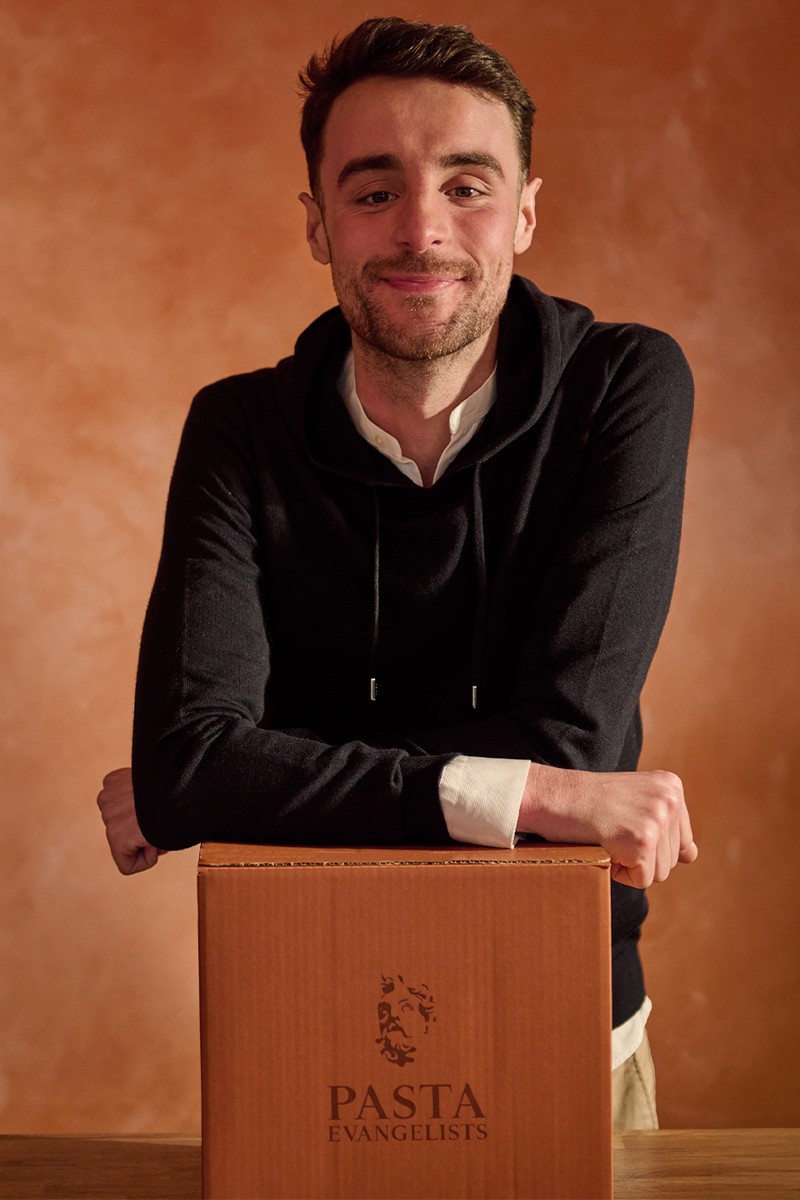
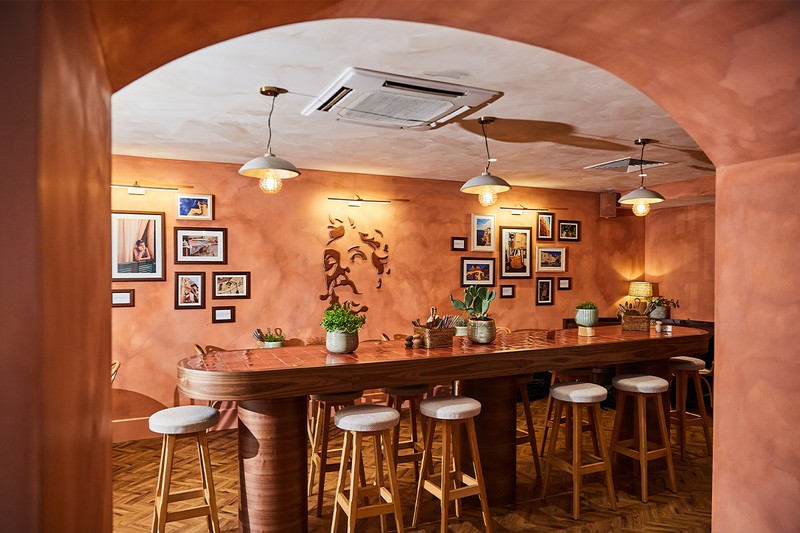
/https%3A%2F%2Fsheerluxe.com%2Fsites%2Fsheerluxe%2Ffiles%2Farticles%2F2025%2F06%2Ffb.png?itok=sMVjuG5M)
